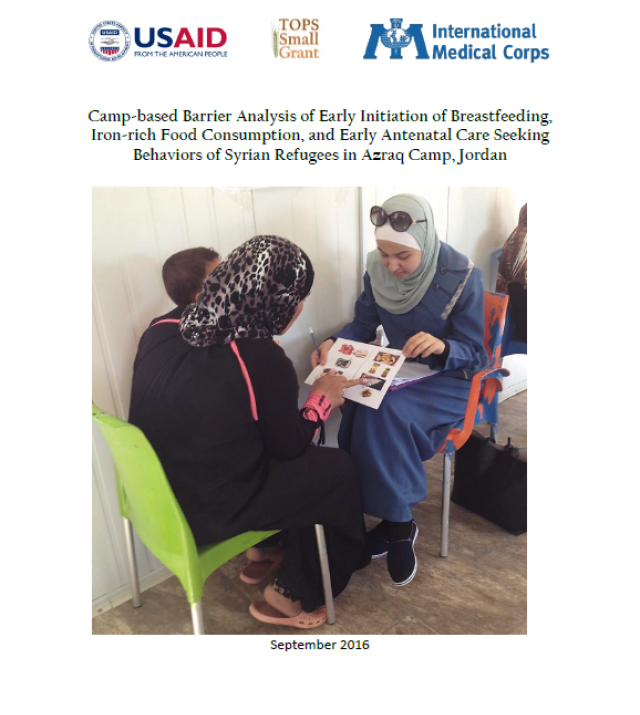
Barrier Analysis of Exclusive Breastfeeding, Minimum Dietary Diversity and Early Antenatal Care Seeking Behaviors of Syrian Refugees in Lebanon

After 5.5 years of conflict in Syria, around 6.5 million people have been displaced and there is still no clear end to the fighting. Lebanon is hosting 1,048,275 registered refugees (UNHCR March 2016), with most living in informal tented settlements, communal housing, or shared apartments. International Medical Corps was awarded a TOPS Microgrant to lead a Barrier Analysis (BA) training and assessment in Lebanon during spring 2016. Partner organizations were invited to learn the BA methodology and participate in three BA assessments in five regions of Lebanon among the displaced Syrian population to inform improved program activity design and advocacy. Three key behaviors that have been promoted, yet require improvement to ensure improved maternal, neonatal, and child health and nutrition were assessed: 1) attending 1 antenatal care (ANC) visit during the first trimester of pregnancy, (2) exclusive breastfeeding (EBF) of children ages 0- 6 months, and (3) feeding children ages 9 – 23 months meals containing foods from at least 4 of the 7 food groups each day (minimum dietary diversity).
Six determinants were found to be significant ANC, 9 determinants for EBF, and 8 determinants for minimum dietary diversity. This report details these significant determinants and provides recommendations on how evidence from these assessments should be used to inform activity planning in International Medical Corps and other agencies’ programs in Lebanon, as well as contribute to advocacy toward policy changes that may be necessary to support behavior change.
